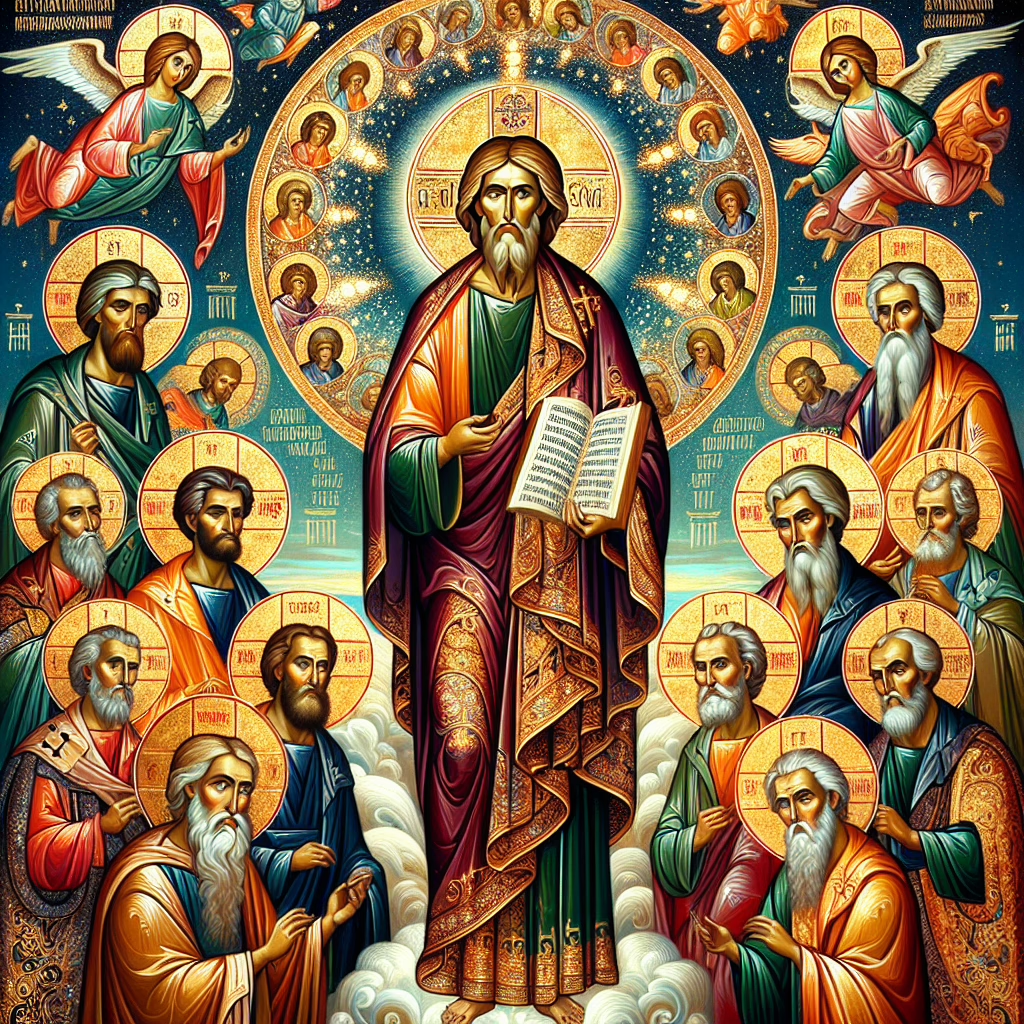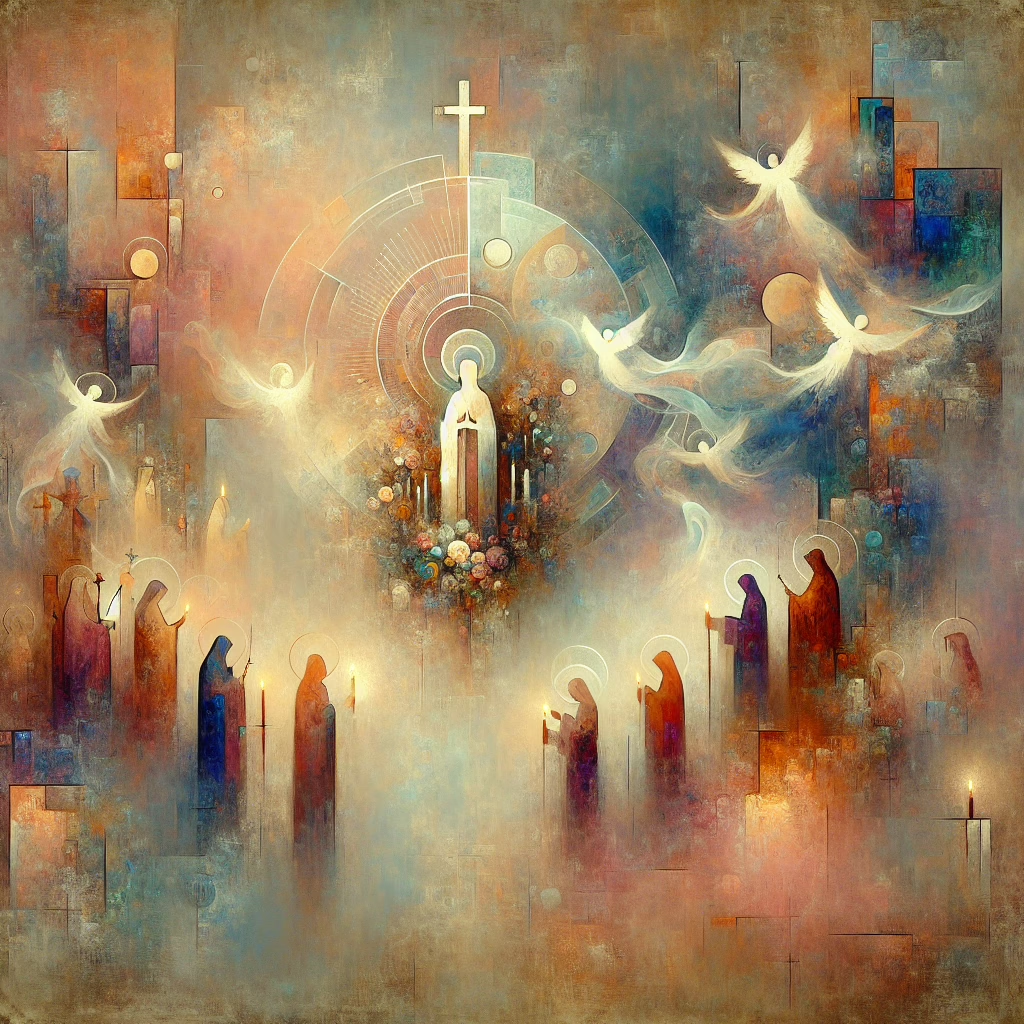Unpacking Some Protestant Critiques of Catholic Theosis: A Catholic Response
Introduction: Delving into the Controversy Surrounding Theosis
The topic of theosis—becoming partakers in the divine nature—has sparked much theological debate, particularly between Protestant and Catholic traditions. While the concept holds significant historical sway in Christian thought, especially within Eastern Christianity, it remains a point of contention for some Protestant communities. They raise critical objections, often arguing that theosis blurs the lines between humanity and divinity, and distracts from the unique mediatory role of Christ. In this blog post, we aim to unpack these objections and offer a Catholic response rooted in Scripture and the teachings of the Church, ultimately clarifying the beauty and truth of Catholic theology surrounding theosis.
1. Objection: Theosis Blurs the Distinction Between Humanity and Divinity
1.1 Protestant Argument
Critics argue that the idea of theosis suggests that humans can become divine, thereby diminishing God's unique standing. This concern arises out of a fear that the distinction between Creator and creature, essential for many Protestant theological frameworks, is eroded. They worry that elevating humans in this way might inadvertently equate them with God, challenging His singular divine nature.
1.2 Catholic Response: Participation in Divine Nature
In response, Catholic theology underscores that theosis refers not to an ontological transformation into divinity but to a participation in God's nature through grace. The central point here is participation, a sharing in the life of God without becoming God. This is made possible through the infused grace given to believers, maintaining the clear distinction between Creator and creature.
1.3 Supporting Evidence
Scripture supports this understanding; for instance, 2 Peter 1:4 speaks of becoming "partakers of the divine nature," highlighting the transformative grace without suggesting an ontological change into divinity. Likewise, the early Church Fathers echo this sentiment.
"For the Son of God became man so that we might become God."
— St. Athanasius, On the Incarnation
The writings of St. Athanasius provide rich theological insight into the communion aspect of theosis without the fusion of essences.
Link: Catholic Understanding of Theosis
2. Objection: Theosis Distracts from Christ's Unique Mediator Role
2.1 Protestant Argument
Another critique posits that theosis may diminish the role of Christ as the sole mediator between God and humanity. Protestants express concern that deification could overshadow the redemptive work of Christ, potentially elevating humans to a status that should be uniquely Christ's.
2.2 Catholic Response: Christological Foundation of Theosis
Catholic theology firmly anchors theosis in the events of Christ's incarnation, death, and resurrection. It asserts that Christ is the central means of participation in divine life, aligning with His role as mediator. The entire process of theosis is rooted in being conformed to the image of Christ, as illuminated in Romans 8:29.
2.3 Supporting Evidence
Church councils and encyclicals have repeatedly emphasized that our progression in theosis is contingent upon and through Christ's sacrificial work.
"Through him, with him, and in him, all glory and honor is yours, Almighty Father."
— Liturgy of the Eucharist
This reflects the integral mediatory role of Christ in the continuous journey of theosis.
Conclusion: Embracing the Transformative Power of Theosis
In conclusion, the concept of theosis, far from diminishing God's glory or Christ’s unique role, invites believers into a transformative relationship where God's transcendence and humanity's potential for holiness meet harmoniously. Catholic theology provides profound responses to the objections of Protestant critiques, ensuring that the Creator-creature distinction remains intact while emphasizing Christ's central role in our salvation.
By continuing to explore the rich theological tradition of theosis, Catholics and Protestants alike can foster deeper dialogue and understanding.
For those intrigued by the transformative power of theosis, I encourage you to delve into Church teachings and join the conversation, bridging gaps in understanding and celebrating our shared faith journey.






Leave a Reply